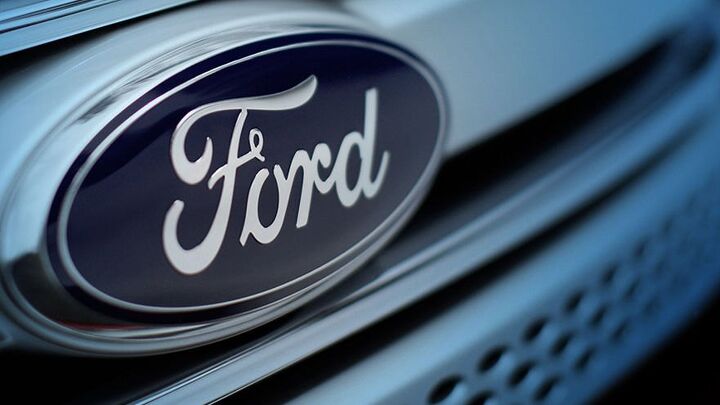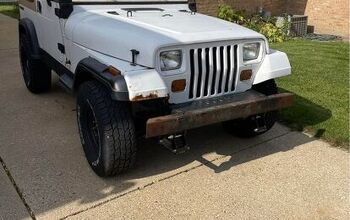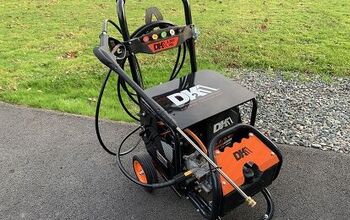Investigation Faults Ford Battery Supply Over National Security Issues

Following fears that Ford’s electric vehicle supply chain may represent a national security issue, concerned legislators are doubling down by outlining the path battery components are required to take in order to get here. On Monday, Rep. Mike Gallagher (R-WI) and Cathy McMorris Rodgers (R-WA) accused the automaker of having plans that required contracting technology and software firms with close ties to both the Chinese and North Korean governments.
Gallagher heads up the House Select Committee on the Chinese Communist Party and McMorris Rodgers serves as the House Energy and Commerce Chair. They’ve been working together to suss out the Blue Oval’s relationship with Contemporary Amperex Technology (CATL), focusing heavily on the battery supply chain and the business’ governmental ties.
Fox News recently reported that legislators had an opportunity to view some of Ford’s signed agreements with CATL. The documents reportedly revealed that four Chinese firms "will be intimately involved" in the development, construction, servicing, and information technology processes for the EV battery factory Ford is building in Marshall, Michigan.
While the investigation is primarily driven by the Republicans, concerns about national security have become a bipartisan issue. However, the Biden administration has bent over backwards to ensure widespread vehicle electrification by 2030 — making the matter harder for some to navigate.
Due to China absolutely dominating in terms of global battery production, there’s almost no way to have domestic EV proliferation without there being some serious industrial overlap. At this stage in the game, a world of electric cars arguably advantages China more than any other nation. The Biden administration has sought to counter these concerns by instituting regional content and labor requirements before products were deemed worthy of federal subsidies. But this has only made Ford’s situation more fraught with peril.
Everyone now seems to be arguing about whether or not the Ford-CATL alliance is even acceptable. Battery production is indeed being localized. But it’s requiring additional integration with a company boasting ties to both the Chinese government and its military. Meanwhile, U.S. regulators continue to debate whether or not the scheme should be eligible for federal funding.
"It is indefensible for Ford to use the same cloud integration and data provider that is linked to North Korean Ministry of Foreign Affairs sanctions evasion activity," Gallagher and McMorris Rodgers wrote to Treasury Secretary Janet Yellen last week.
"Before the Ford plant even comes online, its entire security system could be compromised by this software," they added. "The same company that is actively supporting the PRC’s surveillance state will have the capability to embed backdoors, spyware, and other forms of malware within Ford’s [cloud service] infrastructure, compromising the confidentiality and integrity of Ford’s sensitive information and posing risk to American’s data privacy rights."
From Fox News:
The lawmakers penned the letter to Yellen after reviewing the signed agreements between Ford and CATL. They requested that the Department of the Treasury’s Office of Foreign Assets Control investigate possible sanctions evasion activity conducted by the four firms which remain unidentified.
Gallagher and McMorris Rodgers sent a separate letter to Commerce Secretary Gina Raimondo, asking her agency's Bureau of Industry and Security to investigate the four unnamed software service providers. They specifically asked the agency to consider placing the companies on a list of entities subject to significant U.S. trade restrictions.
"To summarize, a cursory review of publicly available information uncovered the above mentioned companies’ direct ties to the [People's Liberation Army], the CCP, China’s Ministry of Public Security, the ongoing genocide of Uyghur Muslims in Xinjiang, and the North Korean government," they wrote to Raimondo.
And, in a third letter, the Republicans asked Ford President and CEO James Farley to make a relevant company official available for an interview with their committees.
Ford has remained steadfast in its assertion that it’s wholly responsible for the project, noting that it’s been trying to help legislators understand this as it intends to fully comply with regulators.
"Beyond legal requirements, Ford suppliers are required to meet our high standards and codes of conducts, including those to protect human rights, and are obligated to extend those requirements to suppliers with whom they might work," a Ford spokesperson stated. "We welcome any information from any source concerning the integrity of our supply chains and partners."
The above reminds me of a prior investigation that accused Ford, General Motors, Honda, Mercedes-Benz, Stellantis, Tesla, Toyota, and Volkswagen of having benefited from Asian supply chains using forced labor. It was known that many suppliers based in Xinjiang had been leveraging Uyghurs (an oppressed minority group in China) as free labor. The Senate Finance Committee launched an investigation in 2023, following years of reporting on the matter, and determined that there were “massive and expanding links between western car brands and Uyghur abuses, in everything from the hood decals and car frames to engine casings, interiors and electronics.”
Automakers gave a slew of different responses. Some said they would immediately look into the matter while others said they had done nothing wrong and that preexisting corporate policies would make such a situation impossible. A few even said that the issue provided further evidence that supplier ESG compliance needed to be introduced — though that’s another can of worms deserving of a separate article.
But the important takeaway is that the industry is frequently accused of misbehaving and it rarely seems to go anywhere. We’re likewise infrequently afforded irrefutable evidence of the malfeasance, requiring the public to operate on a level of faith that the information they’ve been given is sound.
Things are a little better this time, with the letters outlining the path supply chain resulting in CATL batteries being installed into Ford products.
The company contracted to help develop the batteries on behalf of CATL to be installed at the new Michigan plant likewise designs products for the Chinese military. Next up is the company tasked with providing the factory’s “Integration Platform as a Service tools and applications,” likely serving as an important IT maintenance entity, has been accused of offering similar services to entities affiliated with helping the North Korean government avoid sanctions.
Meanwhile, the business tasked with providing Ford with Unified Authentication Account software (basically online security) was found to also furnish software services to the Shenyang Institute of Automation, a subordinate institute controlled by the Chinese Academy of Sciences. Like most academic entities in China, it has direct ties to the government.
The final company of concern was said to oversee Ford's Business Process Management software. But the letter notes that the company has numerous contracts with China’s Ministry of Public Security’s Xinjiang Uyghur Autonomous Region Public Security Department. As previously mentioned the Uyghur Autonomous Region has repeatedly been accused of serving as an open-air prison for an ethnic minority. In the letter, House members noted that the entity is currently sanctioned by the Treasury Department over its "ongoing facilitation of the genocide of Uyghur Muslims."
CATL itself also has loads of direct ties to the Chinese Communist Party. But there aren’t too many large businesses operating within the country where that’s not true. Most businesses are required by law to have a department devoted to facilitating public-private partnerships, so it’s almost impossible to avoid for Western companies hoping to do business with China.
Frankly, the situation sounds rather dicey in general. Ford has said before that it wants to comply with U.S. regulators. But it also expressed confusion as to what exactly that would mean as various agencies attempted to decide how things would play out under the expansive EV subsidies introduced (or altered) under the Biden administration.
There’s also a smidgen of hypocrisy involved here. While being so heavily reliant on Chinese companies should encourage some enhanced scrutiny on the part of regulators, we’ve seen loads of other domestic companies ally themselves with very little pushback from the government. Loads of American automakers, entertainment studios, and technology companies have all allowed themselves to be intertwined with China and we rarely see them subjected to the same levels of scrutiny.
That’s not to give Ford a pass here. But it is curious that General Motors spent decades striving to break into the Chinese market and actually manufacturers the Buick Envision there for export into the United States, without receiving the same level of concern. Ford has also issued plans to import the Lincoln Nautilus from China, with the only real backlash coming from the media. However, neither issue was framed as a national security risk, but instead as evidence that the U.S. was losing manufacturing jobs to Asia.
[Image: Ford Motor Co.]
Become a TTAC insider. Get the latest news, features, TTAC takes, and everything else that gets to the truth about cars first by subscribing to our newsletter.

A staunch consumer advocate tracking industry trends and regulation. Before joining TTAC, Matt spent a decade working for marketing and research firms based in NYC. Clients included several of the world’s largest automakers, global tire brands, and aftermarket part suppliers. Dissatisfied with the corporate world and resentful of having to wear suits everyday, he pivoted to writing about cars. Since then, that man has become an ardent supporter of the right-to-repair movement, been interviewed on the auto industry by national radio broadcasts, driven more rental cars than anyone ever should, participated in amateur rallying events, and received the requisite minimum training as sanctioned by the SCCA. Handy with a wrench, Matt grew up surrounded by Detroit auto workers and managed to get a pizza delivery job before he was legally eligible. He later found himself driving box trucks through Manhattan, guaranteeing future sympathy for actual truckers. He continues to conduct research pertaining to the automotive sector as an independent contractor and has since moved back to his native Michigan, closer to where the cars are born. A contrarian, Matt claims to prefer understeer — stating that front and all-wheel drive vehicles cater best to his driving style.
More by Matt Posky
Latest Car Reviews
Read moreLatest Product Reviews
Read moreRecent Comments
- Redapple2 I gave up on Honda. My 09 Accord Vs my 03. The 09s- V 6 had a slight shudder when deactivating cylinders. And the 09 did not have the 03 's electro luminescent gages. And the 09 had the most uncomfortable seats. My brother bought his 3rd and last Honda CRV. Brutal seats after 25 minutes. NOW, We are forever Toyota, Lexus, Subaru people now despite HAVING ACCESS TO gm EMPLOYEE DISCOUNT. Despite having access to the gm employee discount. Man, that is a massive statement. Wow that s bad - Under no circumstances will I have that govna crap.
- Redapple2 Front tag obscured. Rear tag - clear and sharp. Huh?
- Redapple2 I can state what NOT to buy. HK. High theft. Insurance. Unrefined NVH. Rapidly degrading interiors. HK? No way !
- Luke42 Serious answer:Now that I DD an EV, buying an EV to replace my wife’s Honda Civic is in the queue. My wife likes her Honda, she likes Apple CarPlay, and she can’t stand Elon Musk - so Tesla starts the competition with two demerit-points and Honda starts the competition with one merit-point.The Honda Prologue looked like a great candidate until Honda announced that the partnership with GM was a one-off thing and that their future EVs would be designed in-house.Now I’m more inclined toward the Blazer EV, the vehicle on which the Prologue is based. The Blazer EV and the Ultium platform won’t be orphaned by GM any time soon. But then I have to convince my wife she would like it better than her Honda Civic, and that’s a heavy lift because she doesn’t have any reason to be dissatisfied with her current car (I take care of all of the ICE-hassles for her).Since my wife’s Honda Civic is holding up well, since she likes the car, and since I take care of most of the drawbacks of drawbacks of ICE ownership for her, there’s no urgency to replace this vehicle.Honestly, if a paid-off Honda Civic is my wife’s automotive hill to die on, that’s a pretty good place to be - even though I personally have to continue dealing the hassles and expenses of ICE ownership on her behalf.My plan is simply to wait-and-see what Honda does next. Maybe they’ll introduce the perfect EV for her one day, and I’ll just go buy it.
- 2ACL I have a soft spot for high-performance, shark-nosed Lancers (I considered the less-potent Ralliart during the period in which I eventually selected my first TL SH-AWD), but it's can be challenging to find a specimen that doesn't exhibit signs of abuse, and while most of the components are sufficiently universal in their function to service without manufacturer support, the SST isn't one of them. The shops that specialize in it are familiar with the failure as described by the seller and thus might be able to fix this one at a substantial savings to replacement. There's only a handful of them in the nation, however. A salvaged unit is another option, but the usual risks are magnified by similar logistical challenges to trying to save the original.I hope this is a case of the seller overvaluing the Evo market rather than still owing or having put the mods on credit. Because the best offer won't be anywhere near the current listing.


































Comments
Join the conversation
We have to face the reality that from 2017-2020, the US ceded leadership to a foreign adversary in such critical technologies as solar, batteries and chip design. Fortunately, the American people in 2020 elected a president with the stones to re-shore these critical technologies back the US.
My brain hurts.
The western world spent billions in China so Walmart and other companies could sell us cheap sh!t.
China took that money and built themselves up.
Politicians now realize they are a threat.
But since this is about EV's..... it's on this blog.
Only 28 plus comments. Maybe worm in vaccines and mask mandates to push up that hit count?